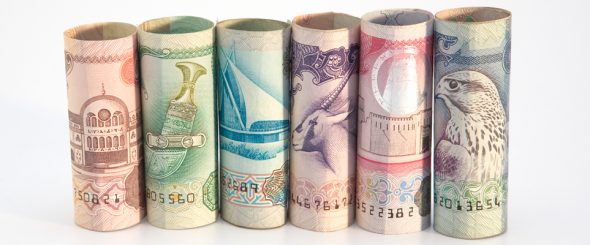It looks like there's no income tax on the UAE horizon
We will have to pay VAT soon, yes, but personal income tax? Not likely…
A federal tax authority has just been set up, and we know we’re getting VAT tax in the UAE by 2018. But there’s good news too: it looks like income tax won’t be coming to the UAE anytime soon, and that’s according to a top UAE official.
Younis Al-Khouri, undersecretary at the finance ministry told Arabic-language daily Al Bayan that the UAE has zero plans to impose new taxes on individuals.
So yes, it looks like there isn’t any personal income tax on the UAE horizon (*excuse us while we go and do our happy dance*).
Al-Khouri also said that the government is not currently studying any other fees for services that will affect individual residents of the UAE: so that means no more extras like housing fees etc.
*ALSO READ: IMF chief’s call for taxes in the UAE*
The UAE has just approved its federal budget for 2017 – the Dhs48.7 billion budget will focus on education, health and community welfare as key pillars says H.H. Sheikh Mohammed bin Rashid Al Maktoum, ruler of Dubai and Vice President of the UAE.
Twenty per cent of the 2017 budget is going to general and higher education, 8.6 per cent to healthcare, 8.2 per cent to pensions, 6.6 percent to community development and 3.3 per cent to housing. Plus, Dhs2 billion has been put aside to fund innovation in order to develop industries and ideas that will create jobs in Dubai’s future.
Also, here’s what we know about VAT in the UAE so far…

– We know the tax will start to be charged in January 2018, and that it will be at a rate of five per cent.
– We know that around 100 items will be exempt from the tax, these include essentials such as education, food and healthcare.
– We know the tax is being introduced across the GCC, and that its implementation has a lot to do with the significant drop in government revenue across the region caused by falling oil prices.
– We know that more details of the VAT scheme across the GCC will be released in the next few months.
– We know that the GCC VAT rate will be very low by worldwide standards. In Albania the rate is 20 per cent, in Australia it’s 10 per cent, in Austria it can be up to 20 per cent – and that’s just the ‘A’ countries. Hungary has the highest VAT rate in the world at 27 per cent, followed by Iceland at 25.5 per cent, and then Croatia, Denmark, Norway and Sweden at 25 per cent.
What kind of shopping will it affect the most?
According to an article by compareit4me.com expert Sonja Stephen on EmiratesWoman.com: “The retail sector will be protected as much as possible, with price increases not being too much of a shock to middle and low income earners. Good news, right? Big purchases will obviously take bigger hits, like cars for example.”
She goes on to explain that VAT is “a positive move to help diversify the government’s sources of income and also a move to put the UAE more in line with an idea that many other countries, globally, have already put into practice. The region will no longer maintain its zero-tax proposition, that’s true, but the impact on our daily lives will be minimal…and the UAE, meanwhile, will continue to flourish.”
– For more about Dubai straight to your newsfeed, follow us on Facebook.
